
Co-Lab Focus Areas
The Co-Lab at RWU reimagines public stories, histories, and storytelling by changing the dynamics of whose stories get told, how, and by whom. The work of The Co-Lab at RWU centers historically marginalized or erased populations and invites them to work with us to investigate and tell a set of new defining narratives and representations for the New England region.
The Co-Lab at RWU undertakes publicly-engaged scholarship across the humanistic disciplines to transform society and lived realities. The publicly-engaged humanities focus on informing contemporary debates, amplifying community voices and histories, supporting communities in navigating difficult experiences, expanding educational access and skill sets, and preserving culture in times of crisis and change. In its work, The Co-Lab at RWU foregrounds the exploration of race and race relations as they structure our world, and seeks to build community-centered pathways toward reconciliation, equity, and justice.
The Co-Lab at RWU focuses on engaging the public in the areas of history, the visual and performing arts, heritage and heritage conservation, space and place, material and visual culture, historical narrative, and public education and intellectualism. Our investigation of topics related to inclusive narratives includes the spoken, the written, the visual, the theatrical, and the embodied, as we imagine the ways that people are both the producers and the products of their geographical and cultural landscapes.
The Visual and Performing Arts
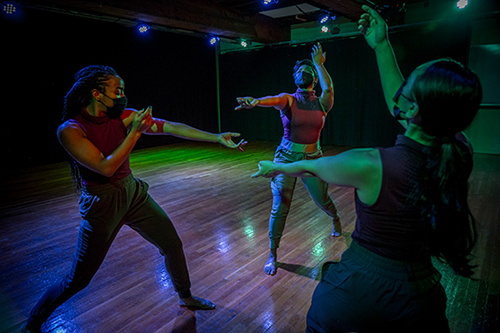
The arts represent perhaps the oldest and most human means of inquiry, interrogation, critical exploration, reflection, and embodied expression. The Co-Lab at RWU leverages the arts as a set of methods and means for bringing new stories, understandings, histories, and questions to the public realm through the senses, experiences, and encounters.
Critical Heritage Studies
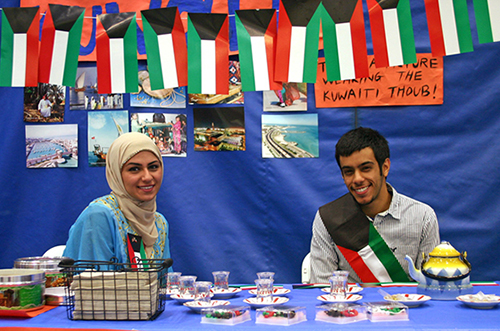
The Co-lab will be a forum for dialogue and interrogation of heritage – or the way we use or experience history for our social, cultural, and political projects in the present - in local, regional, national and global contexts. Critical heritage studies focus on contemporary relationships between people, their heritage, and power, as well as the conflict and negotiation inherent in constructing tangible and intangible heritage. An applied critical heritage studies lens is important in interrogating how people understand themselves and others based on their identities constructed in relation to stories, symbols, objects, and ideas rooted in the past.
Cultural Landscape Studies
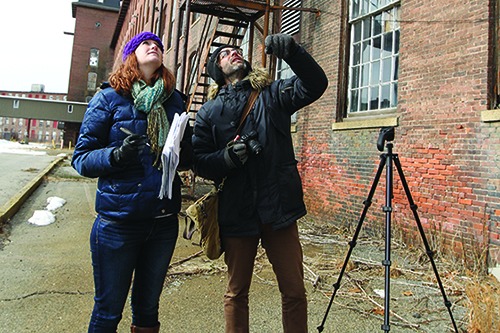
Cultural landscape studies explores the formation, use, and meaning of everyday landscapes. At The Co-Lab at RWU, we focus on landscapes as the products of the exercise of political, economic, and social power and reflections of the resulting social relations. This area explores how urban and rural environments have been shaped by and continue to inform the experiences of diverse populations. We also critically interpret landscapes as sites of contestation, meaning, and significance for people who live, work and play in their midst.
Material and Visual Culture Studies
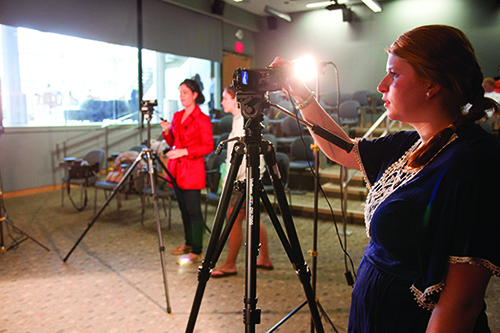
The Co-Lab at RWU will decolonize ways of studying material and visual culture, to be inclusive of stories that have not been centered in these disciplines. Historically, the “gaze” through which scholars have analyzed material objects and visual cultures has been white, male, and Western, prioritizing stories that advance dominant, colonialist histories and narratives. The Co-Lab at RWU will foreground new ways of identifying objects of analysis that center historically marginalized and erased communities, and will endeavor to reimagine modes of looking and representation that center those voices and stories.
History and Narrative
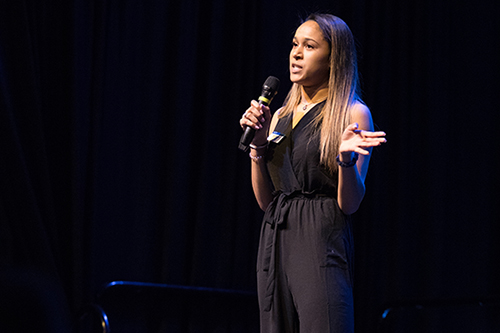
A central component of The Co-Lab at RWU is making stories visible through the humanities and the arts. One aspect of that is attention to how histories are researched and disseminated. This area of The Co-Lab at RWU’s work will intentionally involve communities in the dissemination of their own stories, and in so doing, will interrupt the practice of speaking for others (especially groups who have been historically marginalized and erased by the stories dominant groups tell about them). This practice revises historical narratives, centering communities themselves.
Digital storytelling
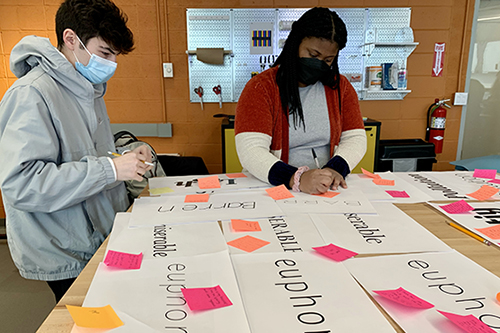
Digital storytelling is a powerful resource for both disrupting colonial narratives and constructing more accurate and inclusive accounts and representations of historical events, cultural phenomena, and social structures. The Co-Lab at RWU will work with communities to build better ways of creating, producing, and sharing more inclusive, representative, and accurate narratives in the digital public sphere, all while preparing students, faculty, and staff to develop and apply equitable and culturally responsive approaches to content development and management and user-experience research and design. In doing so, the Co-Lab at RWU will intentionally seek to remove barriers to access, disempowering gatekeepers that marginalize specific groups, and supporting local communities in authoring their own stories, histories, and representations through community-driven research, design, communication, and education practices.
Public Education and Intellectualism
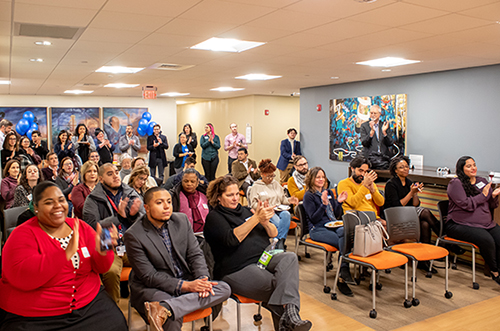
The Co-Lab at RWU is dedicated to developing a culture of public intellectualism in two senses: first, by engaging in research connected to the social, cultural, and political world around us and second, by producing scholarly research that is accessible, meaningful, and useful to the public. In our work, we strive to leave communities better prepared, resourced, and organized to achieve their goals.